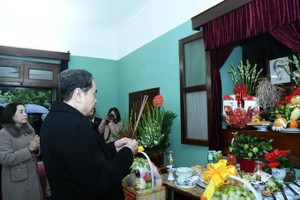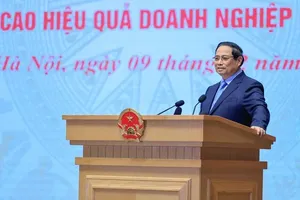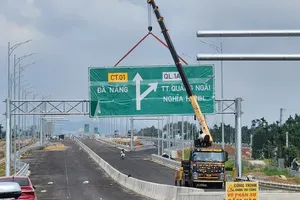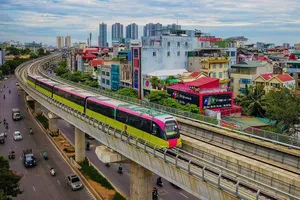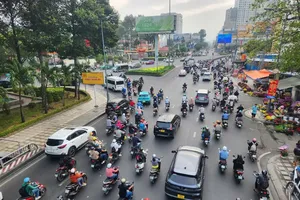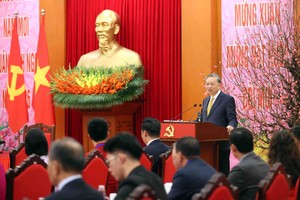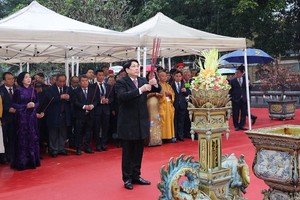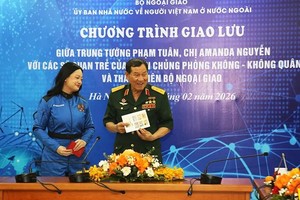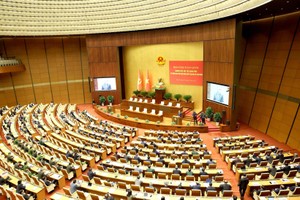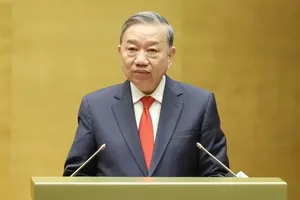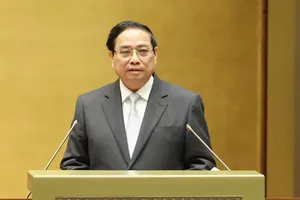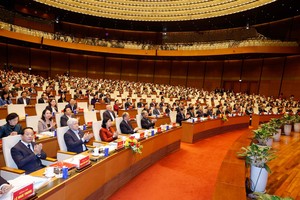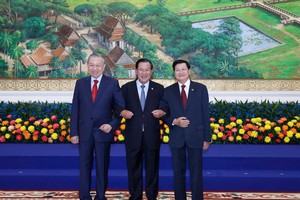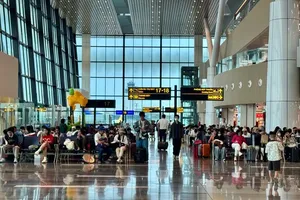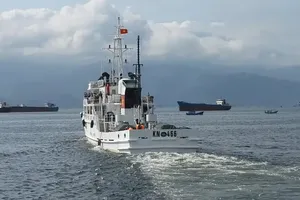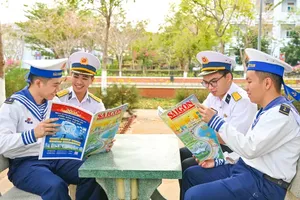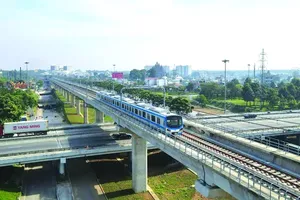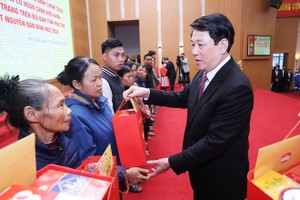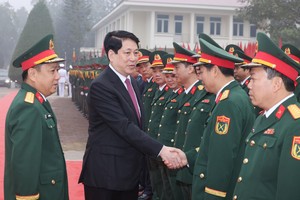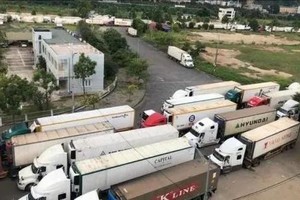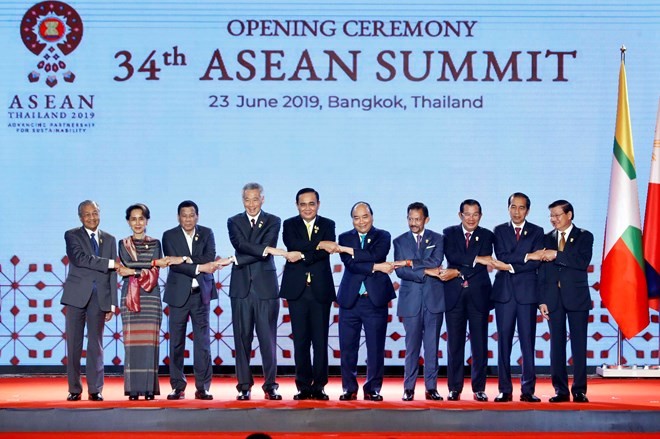
Prime Minister Nguyen Xuan Phuc led the Vietnamese delegation to the opening ceremony and sessions of the summit from June 22-23.
As Vietnam will hold the ASEAN Chair in 2020, in his speech, PM Phuc underlined the need for sustained solidarity and unity in ASEAN, calling on the member nations to step up intra-bloc economic connectivity, trade and investment, and maintain a fair, open and rules-based multilateral trade system effectively adapted to the Fourth Industrial Revolution.
He asked for steadfastness, sincerity and candour in relations among the member states, stressing the need for respect for diversity and differences while not harming one another’s sentiment and interests.
Regarding the ASEAN Chairmanship in 2020, Vietnam pledges to inherit and build on the bloc’s achievements and coordinate closely with other members while serving as a non-permanent member of the UN Security Council, thus helping to promote the global stature of ASEAN.
As for the East Sea issues, the PM said ASEAN should have a straightforward view and recognise the positive steps in the negotiations on a Code of Conduct (COC) in the East Sea, but it also should not leave aside the complex developments in reality. He asked ASEAN to simultaneously encourage dialogues and cooperation and adopt a responsible voice in response to the developments that negatively affect regional peace, security and stability.
On the sidelines of the summit, PM Phuc had a working breakfast with his counterparts Thongloun Sisoulith of Laos and Samdech Techo Hun Sen of Cambodia. He also met with Indonesian President Joko Widodo, Thai PM Prayut Chan-o-cha, Singaporean PM Lee Hsien Loong, and Philippine President Rodrigo Duterte, according to Deputy Minister Dung.
The official noted that the 34th ASEAN Summit took place amidst a number of new developments in the region and the world, from politics, security to economy and society, including the fierce competition among big countries, especially the US-China trade tension, the strongly growing Industry 4.0, and global challenges like marine waste, pollution and climate change.
Dung described the theme “Advancing Partnership for Sustainability” for the ASEAN Chairmanship 2019 of Thailand as appropriate which has created a prerequisite for cooperation for sustainability of the bloc.
At the summit, the countries looked into major and strategic issues relevant to cooperation within ASEAN and between ASEAN and partners. They adopted a document on the ASEAN Outlook on the Indo-Pacific, which affirms the immutable principles of the grouping and sets up orientations for ASEAN’s behaviours towards partners.
The participating leaders discussed many macro-measures to foster economic and trade cooperation within the bloc, thus enhancing ASEAN’s resilience. In particular, they agreed to promote a seamless ASEAN through stepping up sub-regional connectivity; actively prepare for Industry 4.0, especially in terms of human resources; and soon conclude the talks on the Regional Comprehensive Economic Partnership (RCEP).
During the event, they also agreed to promote an ASEAN of sustainable development that is oriented towards the people, centres on the people and, especially, leaves no one behind. Given this, they were unanimous in reinforcing the complementarity between the ASEAN Community Vision 2025 and the UN 2030 Agenda for Sustainable Development, and in cooperating to deal with waste, environmental pollution and climate change.
Four documents were adopted at the summit, namely the ASEAN Leaders’ Vision Statement on Partnership for Sustainability, the Bangkok Declaration on fighting maritime waste in the region, the ASEAN Leaders’ Statement on the ASEAN Cultural Year 2019, and the document on the ASEAN Outlook on the Indo-Pacific.
Deputy Minister Dung highlighted the importance of the ASEAN Outlook on the Indo-Pacific, adding that this document affirms the possibilities of the bloc’s cooperation, consensus and solidarity in responding to external changes and challenges. It is also a message of the grouping to the world that expresses the wish to have an Indo-Pacific region of peace, stability and prosperous development.
At the summit, the regional leaders emphasised that countries need to persist in principles of international law, including the 1982 UN Convention of the Law of the Sea, exercise self-restraint, and avoid unilateral actions that may undermine trust like land reclamation and militarisation in the East Sea.
They also applauded the attained outcomes in the COC talks, voicing their hope to soon finalise an efficient, effective and internationally recognised COC, the official added.
As Vietnam will hold the ASEAN Chair in 2020, in his speech, PM Phuc underlined the need for sustained solidarity and unity in ASEAN, calling on the member nations to step up intra-bloc economic connectivity, trade and investment, and maintain a fair, open and rules-based multilateral trade system effectively adapted to the Fourth Industrial Revolution.
He asked for steadfastness, sincerity and candour in relations among the member states, stressing the need for respect for diversity and differences while not harming one another’s sentiment and interests.
Regarding the ASEAN Chairmanship in 2020, Vietnam pledges to inherit and build on the bloc’s achievements and coordinate closely with other members while serving as a non-permanent member of the UN Security Council, thus helping to promote the global stature of ASEAN.
As for the East Sea issues, the PM said ASEAN should have a straightforward view and recognise the positive steps in the negotiations on a Code of Conduct (COC) in the East Sea, but it also should not leave aside the complex developments in reality. He asked ASEAN to simultaneously encourage dialogues and cooperation and adopt a responsible voice in response to the developments that negatively affect regional peace, security and stability.
On the sidelines of the summit, PM Phuc had a working breakfast with his counterparts Thongloun Sisoulith of Laos and Samdech Techo Hun Sen of Cambodia. He also met with Indonesian President Joko Widodo, Thai PM Prayut Chan-o-cha, Singaporean PM Lee Hsien Loong, and Philippine President Rodrigo Duterte, according to Deputy Minister Dung.
The official noted that the 34th ASEAN Summit took place amidst a number of new developments in the region and the world, from politics, security to economy and society, including the fierce competition among big countries, especially the US-China trade tension, the strongly growing Industry 4.0, and global challenges like marine waste, pollution and climate change.
Dung described the theme “Advancing Partnership for Sustainability” for the ASEAN Chairmanship 2019 of Thailand as appropriate which has created a prerequisite for cooperation for sustainability of the bloc.
At the summit, the countries looked into major and strategic issues relevant to cooperation within ASEAN and between ASEAN and partners. They adopted a document on the ASEAN Outlook on the Indo-Pacific, which affirms the immutable principles of the grouping and sets up orientations for ASEAN’s behaviours towards partners.
The participating leaders discussed many macro-measures to foster economic and trade cooperation within the bloc, thus enhancing ASEAN’s resilience. In particular, they agreed to promote a seamless ASEAN through stepping up sub-regional connectivity; actively prepare for Industry 4.0, especially in terms of human resources; and soon conclude the talks on the Regional Comprehensive Economic Partnership (RCEP).
During the event, they also agreed to promote an ASEAN of sustainable development that is oriented towards the people, centres on the people and, especially, leaves no one behind. Given this, they were unanimous in reinforcing the complementarity between the ASEAN Community Vision 2025 and the UN 2030 Agenda for Sustainable Development, and in cooperating to deal with waste, environmental pollution and climate change.
Four documents were adopted at the summit, namely the ASEAN Leaders’ Vision Statement on Partnership for Sustainability, the Bangkok Declaration on fighting maritime waste in the region, the ASEAN Leaders’ Statement on the ASEAN Cultural Year 2019, and the document on the ASEAN Outlook on the Indo-Pacific.
Deputy Minister Dung highlighted the importance of the ASEAN Outlook on the Indo-Pacific, adding that this document affirms the possibilities of the bloc’s cooperation, consensus and solidarity in responding to external changes and challenges. It is also a message of the grouping to the world that expresses the wish to have an Indo-Pacific region of peace, stability and prosperous development.
At the summit, the regional leaders emphasised that countries need to persist in principles of international law, including the 1982 UN Convention of the Law of the Sea, exercise self-restraint, and avoid unilateral actions that may undermine trust like land reclamation and militarisation in the East Sea.
They also applauded the attained outcomes in the COC talks, voicing their hope to soon finalise an efficient, effective and internationally recognised COC, the official added.
